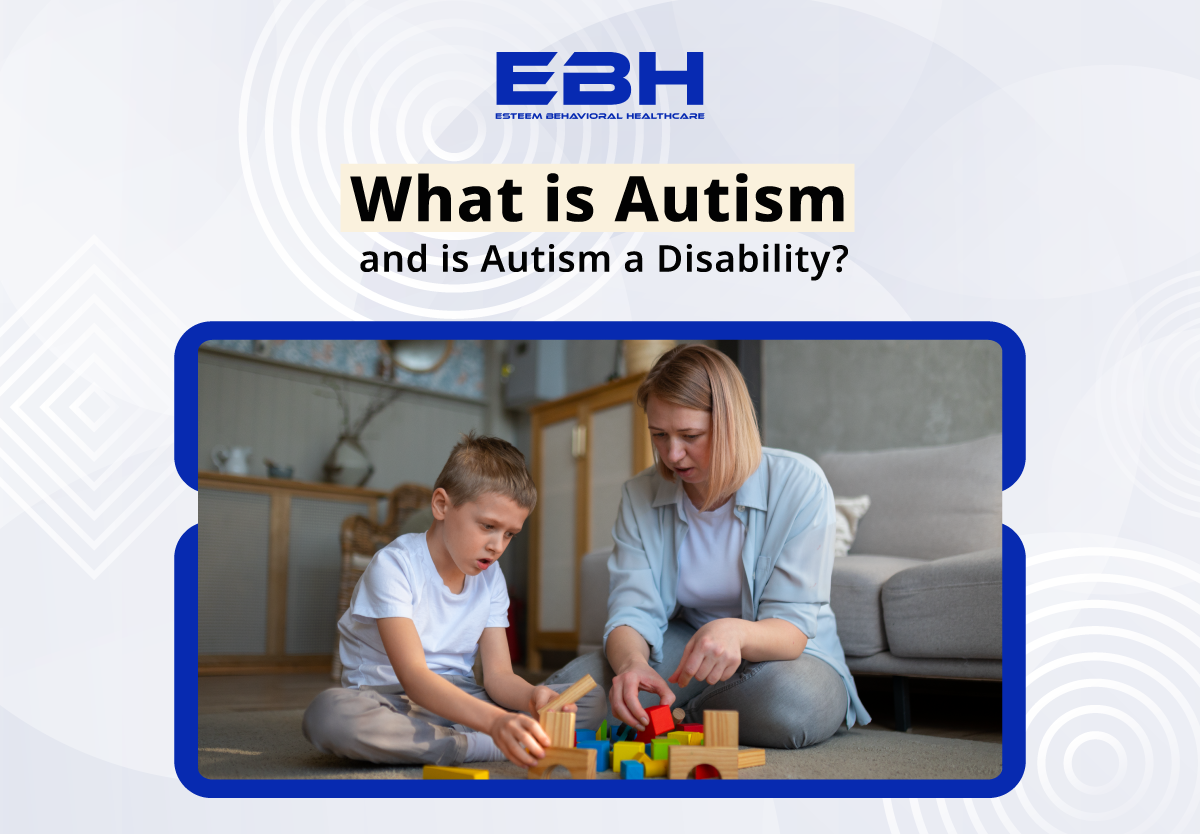Autism, also known as Autism Spectrum Disorder (ASD), is a type of brain development issue. These involve difficulties with talking, socializing, and repeating behaviors.
Autism influences people in different ways. It can be severe or mild and has unique advantages and disadvantages. Knowing about autism is key.
It helps us build a society that accepts and aids Autistic people, allowing them to succeed.
At Esteem Behavioral Health Abdul Baba PMHNP-BC puts his enough efforts forward to provide premium mental and behavioral health care. His treatable issues include one notably common one Autism.
Autism Background
Let’s discuss autism spectrum disorder, or ASD. It’s a condition that starts early in childhood and continues all through the person’s life. Because ASD covers many symptoms and capabilities, it is also known as “spectrum” disorder.
Some people diagnosed with autism can face big hurdles every day. Yet, some show impressive talents in certain fields.
Individuals on the autism spectrum often face challenges when engaging with or communicating with others. Frequently repeating behaviors, interests, or activities is common.
These characteristics can present themselves in varied ways and impact each person differently.
Is Autism a Disability?
Let’s differentiate between “disorder” and “disability” to get a clearer idea. A disorder affects basic mind or body functions. Think about issues related to understanding, emotion, and behavior.
Autism is a mental disorder. Why? Due to its impact on neurological, psychological, and social aspects. The CDC defines a disability as any health issue that makes life harder for the person in question.
Does autism fit this description? Yes, it’s considered a disability. Autism related symptoms can represent difficulties in fitting into societal norms and doing day-to-day tasks.
Autism Spectrum Physical Characteristics
Autism Spectrum Disorder (ASD) Traits Beyond its effects on behavior, communication, and social skills, Autism Spectrum Disorder (ASD) also has physical problems. These can differ greatly from person to person, and not everyone with autism shows these traits.
-
Motor Skill Issues Fine Motor Skills
Some people with autism might struggle with fine motor skills, affecting tasks such as writing, buttoning clothes, or handling utensils.
Gross Motor Skills: broader body movements can be tricky, such as balance, coordination, or actions like running and climbing.
-
Repeated Movements Stimming
Stimming and repetitive actions like hand-flapping or rocking, are common in autism. It helps manage sensory information or show emotions.
-
Odd Gait or Stance Gait Oddities
Some may have a distinctive walk or toe-walk due to motor planning and coordination differences.
Postural Differences: There might be visible differences in posture, such as leaning forward, which comes from muscle tone and coordination differences.
-
Sensory Sensitivities Hypersensitivity
sensory stimuli might be extra intense for many, causing physical reactions to certain sounds, textures, or smells.
Hyposensitivity: On the flip side, some may seek out intelligent sensory experiences due to reduced sensitivity to sensory input.
-
Face Expressions
Autism might result in less varied or overexaggerated facial expressions. Eye Contact: Unusual or limited eye contact might also be a characteristic affecting social and sensory processing.
-
Physical Health Issues Co-Occurring Conditions
Autism often pairs with other physical conditions, like migraines, gastroenterological issues, or sleep troubles.
Muscle Tone: Changes in muscle tone can also impact movement and posture in individuals with autism.
Support and Treatment Options
-
Early Help Programs
Kids with autism benefit from early help. These programs address delays and boost skills. They can include speech therapy, occupational therapy, and behavior treatments.
-
Behavior Treatments
Techniques like Applied Behavior Analysis (ABA) are useful. They help foster new skills and decrease difficult behaviors. These treatments are adjusted to meet individual needs.
-
Educational Support
Kids with autism need school support. Custom educational programs and specialized classrooms supply the resources to help them learn and grow.
-
Family and Community Help
Families and communities give crucial support to people with autism. By educating and offering resources, they increase their ability to care for loved ones.
Promoting Autism Awareness and Inclusion
Knowing about autism helps everyone understand and accept it. This leads to better health, less stigma, and more welcoming environments.
-
Inclusion Tactics
Inclusion means making places fit everyone’s needs. Workplaces, schools, and public areas can be made to be more accepting and supportive.
-
Advocacy’s Role
Advocacy fights for resources and policies for autism. Advocates fight for equal chances and necessary services for those with autism.
In Conclusion
Seeing autism as a condition and a challenge lets us aid people on the spectrum better. By increasing knowledge, inclusivity, and unique assistance, we can create a path for those with autism to succeed and excel.
FAQs
-
What are the early signs of autism in children?
These might be late speech, excess or lack of eye contact, low enthusiasm for being social, and repeated actions.
-
Can adults be diagnosed with autism?
Absolutely, adults can have autism diagnosed. They sometimes don’t get a diagnosis until their later years, especially if symptoms are not severe.
-
Is there a cure for autism?
Autism hasn’t got a cure yet, but with early help and the right support, people with autism can still live life to the fullest.
-
How can I support a family member with autism?
Helping someone with autism in your family means meeting their needs, having a solid and expected setting, and getting professional help when needed.
-
What resources are available for individuals with autism?
Available support includes early help plans, learning services for special needs, behavior therapies, support groups, advocacy agencies.


No comment